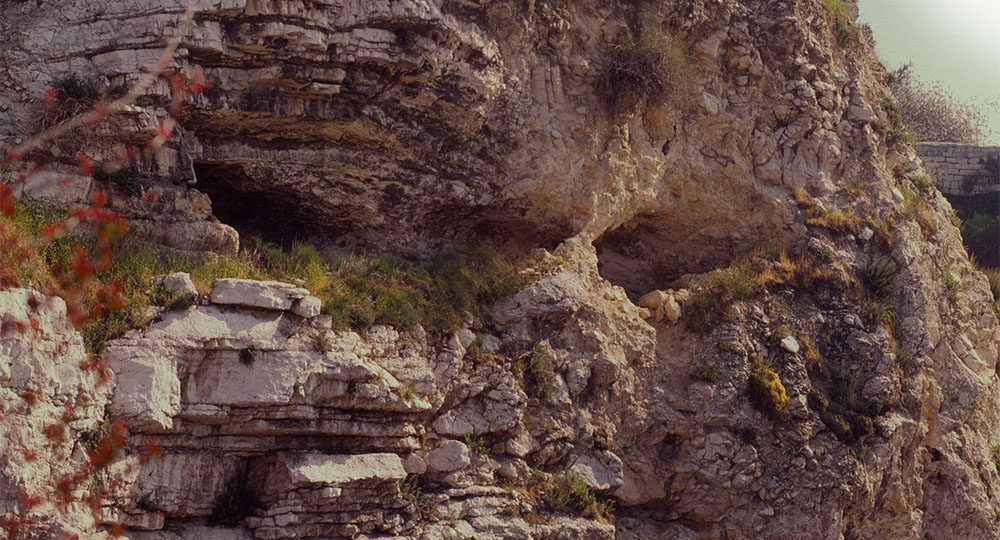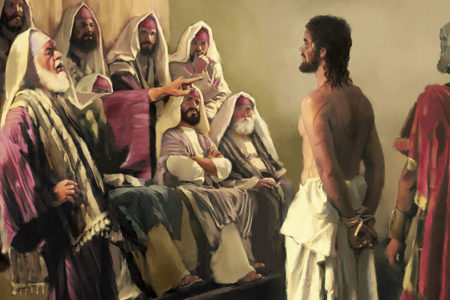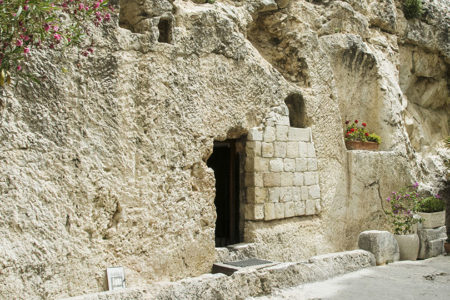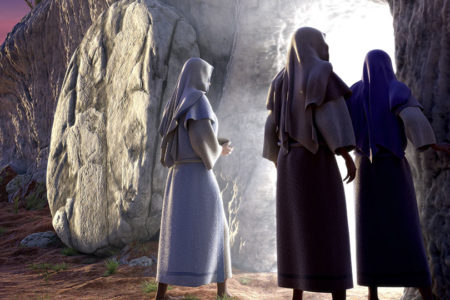A Hill Called Calvary
Was Jesus crucified at Calvary or Golgotha? Would it be shocking to hear it was at both? Both names point to the same location outside Jerusalem.
The word Calvary in Luke’s Gospel is English for a Latin term translated from a Greek word meaning “cranium” or “skull” (Lk. 23:33). The other Gospel writers—Matthew, Mark, and John—used the word Golgotha. It is a transliteration of an Aramaic term taken from a Hebrew word meaning “skull” or “a place of a skull” (Mt. 27:33; Mk.15:22; Jn. 19:17). So much for the charge that Scripture contradicts itself. Jesus was crucified at Calvary, which is also Golgotha.
It is not hard to visualize what happened at Calvary: Jesus was thrown backwards violently, His shoulders slamming against the heavy crossbeam He carried through the streets of Jerusalem. A soldier pounded a heavy iron nail through each of His wrists. The beam was lifted and attached to the standing stake. On top, an inscription read, “JESUS OF NAZARETH, THE KING OF THE JEWS” (Jn. 19:19).
With His knees slightly flexed and one foot pressed on top of the other, a nail was hammered through the arch of each foot. Excruciating pain spread throughout His body. After six hours of brutal agony, Jesus said, “‘It is finished!’ And bowing His head, He gave up His spirit” and died (v. 30). A soldier pierced His side with a spear, and blood and water came out.
Why did all this happen on a hill called Calvary? Because “God demonstrate[d] His own love toward us, in that while we were still sinners, Christ died for us” (Rom. 5:8).
It was at Calvary where three unseen, yet real, services were accomplished:
- We were redeemed. Like God’s Passover lamb, Jesus’ shed blood bought our ransom and forgiveness of our sins (Eph. 1:7; Col. 1:14).
- We were reconciled. Originally, we were God’s enemies. Calvary changed that relationship. Now there is an unending peace between God and man (Rom. 5:10; Col. 1:20–21).
- God’s justice and holiness were satisfied. The Bible calls this doctrine propitiation, the turning away of wrath by an offering. God viewed Jesus’ shed blood as an acceptable sacrifice for sin (Isa. 53:10; Heb. 2:17; 1 Jn. 2:2; 4:10). God received this sacrifice just like the blood sprinkled on the mercy seat on the Day of Atonement. Jesus’ blood, however, didn’t merely cover sins; it brought us grace and redemption: “In Him we have redemption through His blood, the forgiveness of sins, according to the riches of His grace” (Eph. 1:7).
All that remains is for individuals to believe that He died for them personally and to come to Him in repentance.
There is a grand sequel to the drama on Calvary’s hill. Jesus was taken down from the cross. His body was prepared in the Jewish custom. A huge, heavy stone was rolled in front of the tomb’s entrance. Then a special Roman unit was stationed in front of the tomb. All was set for an ancient prophecy to be fulfilled: “For You will not leave my soul in Sheol, nor will You allow Your Holy One to see corruption” (Ps. 16:10).
What came about three days later is probably best expressed by the refrain from a great classic hymn, “Christ Arose,” written by Robert Lowry in the 19th century:
Up from the grave He arose;
with a mighty triumph o’er His foes;
He arose a victor from the dark domain, and He lives forever, with His saints to reign.
He arose! He arose! Hallelujah! Christ arose!
Because He lives, we, too, shall live. In His victory over the Devil and death rests the glorious promise of resurrection for all who truly have placed their faith in Him.








Hallelujah Yehoshu’a HaMashiach!